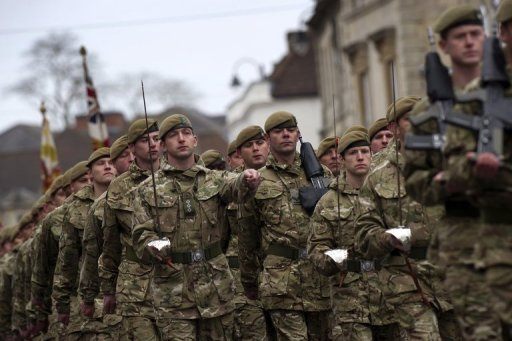British Prime Minister David Cameron has courted controversy after conceding the defence budget would not be protected under a Conservative government, and the spend could fall below the NATO two percent minimum.
Speaking on Sunday-morning political talk programme the Andrew Marr Show, David Cameron failed to make a pledge to guarantee military spending levels, which has angered some members of his government. He said: “Let’s see how these things develop, that’s going to depend on the decisions we make, on what happens with the economy.
“I don’t want to see our regular armed services reduced below the level they are now, it’s a commitment I’m happy to make, I don’t want to see that happen”, reports The Times.
A key requirement for membership of the North Atlantic Treaty Organisation (NATO) is that a nation spends at least two percent of its GDP on the military. In reality many of the nations do not come close to hitting the two-percent target, and rely on the United States to underwrite their defence.
The United Kingdom is one of the few nations that, in the post cold-war era, has kept to the agreement and spends in excess of two-percent, but only just at 2.3 percent. Despite member nations of NATO signing the Wales Declaration on military spending last year, which re-affirmed commitments to the previously established levels, many have still yet to reach it.
Many within the Conservative party have long asserted that, considering the deteriorating global security situation the defence budget should at the very least be ring-fenced. The Conservative chairman of the Defence Select Committee told The Times: “The world is now more dangerous than it’s been in any time in the last 20 years.
“What we’re now looking at in western Iraq and eastern Syria is far worse than anything we saw in Iraq in 2003 when we had a much larger defence budget”.
The admission from the prime minister comes as it is revealed the new generation of British frigates, once completed in the next decade will be the work-horses of the Royal Navy, most likely serving well into the 2060s. Although the class of new Type 26s will replace the retiring Type-23 frigates on a one-for-one basis, the frigate force is as small now as it ever has been in modern British history, with the bare minimum number of ships to perform the Navy’s standing commitments.

COMMENTS
Please let us know if you're having issues with commenting.